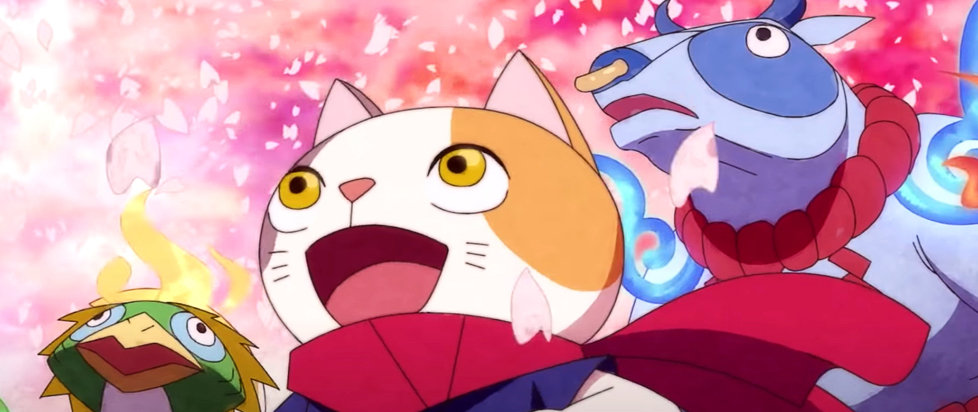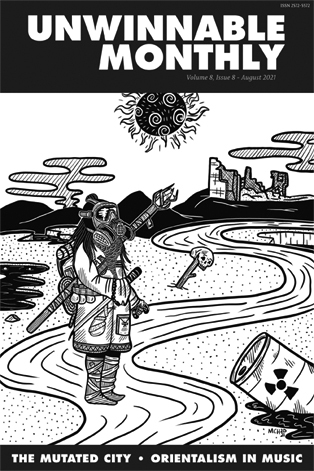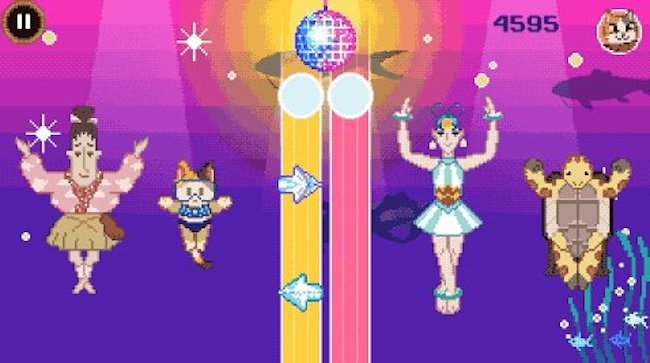
The Terrifying Truth Vs. Some Free JRPG Mini Games

This column is a reprint from Unwinnable Monthly #142. If you like what you see, grab the magazine for less than ten dollars, or subscribe and get all future magazines for half price.
———
Where videogames meet real life…
———
When I first clicked on the latest Google Doodle celebrating the 2020 Summer Olympics, I lost my mind. The illustrated (and sometimes interactive) elements the search engine giant places around the logo on its home page to commemorate special events aren’t new. What is new, however, is hiding an entire JRPG-themed collection of mini games above the search bar, complete with fully animated cutscenes and a global leaderboard, flexing the company’s data-crunching capabilities in an innovative way.
Titled Doodle Champion Island Games and made in collaboration with the Tokyo-based animation company Studio 4°C, it’s indeed an impressive technical achievement that has earned Google plenty of headlines. If you haven’t checked it out yet for yourself, the game opens with Lucky the Calico Ninja Cat docking on an island, where players can choose to join one of four teams. Then, they’re able to select from multiple different events to compete in. It’s a fun diversion that ties in well with other videogame-related promotions – like the videogame-themed opening ceremonies – hyping the Olympics.
It’s a clever piece of marketing to be sure. And that’s part of the reason it feels so grim.
The Olympics should be a celebration of athletic excellence and the spirit of competition. Yet when this year’s Summer Olympics are taking place in Japan while the country is experiencing emergency levels of new virus cases, my mind can’t separate anything about this year’s games from the fact that they shouldn’t be happening.
Parts of the country are not only experiencing increases in cases but are actually hitting record levels of infection. Health care systems are once again buckling under the pressure. Out of 220 cases directly involving the Olympics themselves, around half have been amongst “contractors providing services,” which we can probably take to mean food service and janitorial staff (meaning the least economically well off have been hit the hardest). It is cruelty stacked upon cruelty, covered under a guise of hope.

No wonder 55% of the public in Japan didn’t want the Olympics to take place in Tokyo this year. Sure, the Olympics often cause controversy wherever they go because people object to the cost of hosting them. But they’re not usually held during global pandemics. Even though there are no spectators in the stands, the infection rate amongst athletes and staff isn’t exactly comforting.
Some experts have said the games are “unlikely” to be a super spreader event, citing broader trends in transmission of new virus variants as the cause for increased cases in Japan. Yet other reporting sounds less optimistic, pointing to the fact that the games – despite the number of preventative measures put in place – is likely contributing to community spread in several ways even if it’s not technically a super spreader event. It certainly isn’t helping, whether we know (or will ever know) the extent of its impact.
Something like Doodle Champion Island Games should be little more than an innocent diversion promoting the greatest athletic event on Earth. But as a promotional item that’s intended to shape people’s perception of the games, even while they’re surrounded by a public health crisis, there’s something that feels off about something so saccharine being used to promote an event with some deeply upsetting problems.
Under normal circumstances it’s not something I’d even think about. At least I wouldn’t think about it this hard. For what it’s worth, I don’t think Google nor Studio 4°C created something that was intended to be much more than a piece of interactive art and creative content marketing, rather than something that could be construed as propaganda to distract from the fact that the Summer Olympics are currently taking place in a country that is experiencing sharply rising caseloads of a dangerous virus.

Maybe I’m being too optimistic, but I would hope that no one being pitched the idea of helping to promote a super spreader event would take the money in good conscience, and I want to be careful not to make that accusation based on no actual information. But it’s also telling that Nintendo – who made headlines when leaked documents showed they backed out of the Olympic ceremonies – did so more because of internal tension and creative conflict rather than anything to do with ethics or public health concerns.
I sometimes wonder what “normal” would look like in my mind right now and I think it’s something close to being able to play a free game in a browser without wondering what kind of irresponsible spread of lethal illness it might be helping to promote, whether that outcome was intentional or not. I shouldn’t be able to wring my brain like a damp sweat rag and somehow squeeze out 1,000 or so words about something that ordinarily wouldn’t warrant a mental deep dive or much more than a simple news piece.
Once COVID-19 vaccinations began rolling out, I was (perhaps naively) hopeful that by the time the Olympics came around, we wouldn’t still be talking about things like this. Like everyone else, I’m tired. I want a reason to believe this isn’t a conversation we’re going to keep having for years instead of months. The cognitive dissonance between learning that the Asahi Shimbun (one of Japan’s largest newspapers) called for the cancellation of the games and playing a bright and cheerful cartoon game meant to sell the world on the idea that the summer games are, in fact, good and problem-free, feels jarring in a way that’s hard for my mind to shake.
Doodle Champion Island Games may be the least likely example of how games and politics are inseparable, if not because of their actual content, but because of the cultural context surrounding their creation and how they choose to either challenge or reinforce public perception around real-world issues. I want to be able to say it’s just a cool thing Google did that’s worth checking out for a few minutes. But it’s also a reminder that when everything else is said and done, money is the only thing that talks.
———
Ben Sailer is a writer based out of Fargo, ND, where he survives the cold with his wife and dog. His writing also regularly appears in New Noise Magazine.




